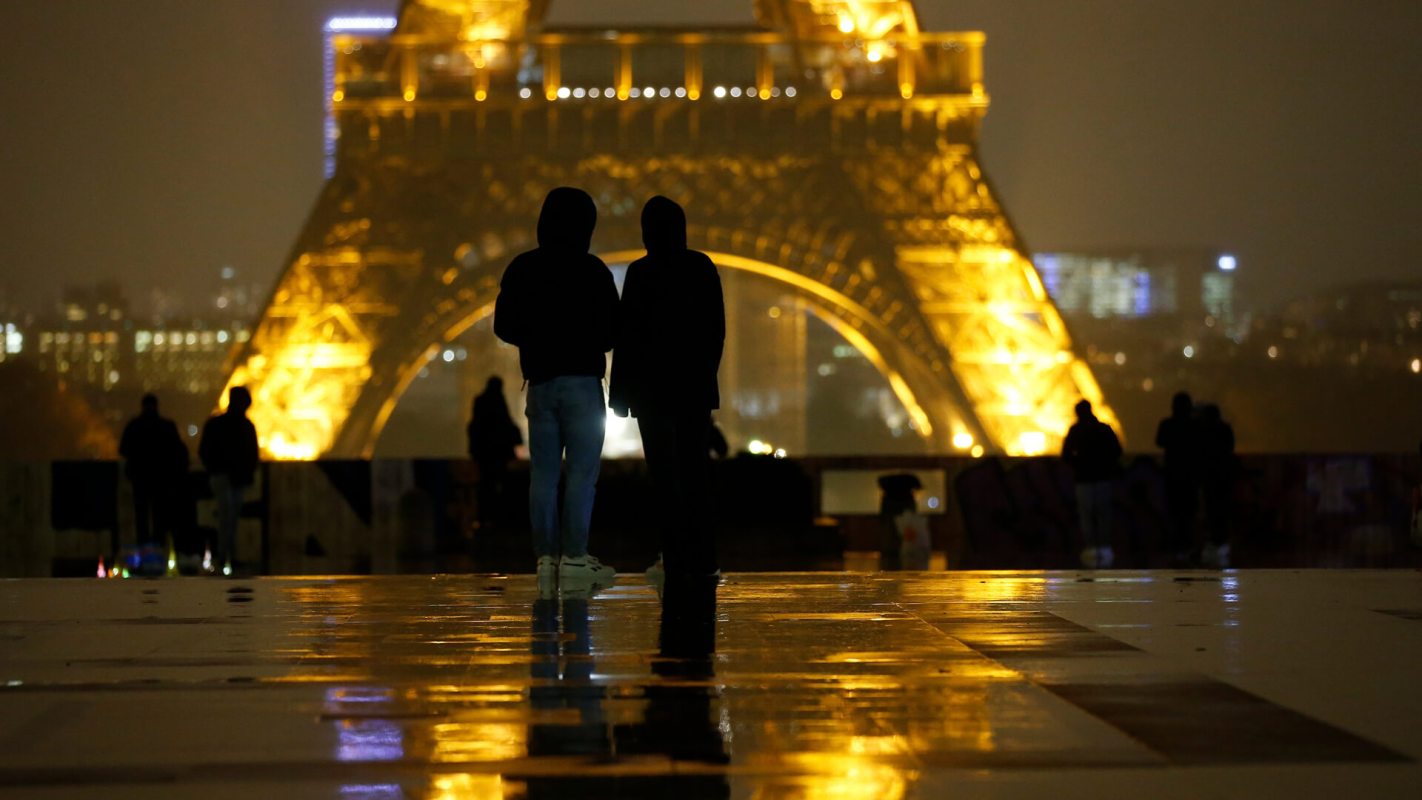This fall and winter, cities across France will turn off their lights much earlier than usual. Even the Eiffel Tower will go dark hours before it's supposed to.
The measures are part of a campaign that some are calling "the winter of energy sobriety." Due to the ongoing war in Ukraine, Europe is facing an energy crisis that's expected to peak this winter when the days get colder and the nights begin earlier.
"Energy sobriety" is a term popular in France, which refers to reducing energy use by adjusting daily habits and behaviors. The phrase started getting national attention last month, when French president Emmanuel Macron announced that he aimed for the country to reduce the country's energy consumption by 10% this winter.
Paris was the first city to take action. Last month, the city began turning off the lights in all municipal buildings at 10 p.m. in order to save electricity.
Officials also turned down the temperature in public swimming pools, delayed the heating in government buildings, and started turning off the Eiffel Tower's iconic lights at 10:45 pm. The monument normally stays bright until 1 a.m. The city's mayor, Anne Hidalgo, was quick to remind residents that the moves were only temporary.
"France will always be the City of Light", she said, according to Reuters.
Soon, other towns followed suit by turning off street lamps that would normally stay lit all night and requiring businesses to turn off their lights once they close. French officials have even said they'll pay government employees to work from home to avoid heating offices.
And when employees do come to work, they're encouraged to wear turtlenecks for warmth. To promote the energy sobriety initiative, President Macron has been rocking the aforementioned look in press conferences.
Europe's energy crisis is complex, but the shortages are largely tied to the war in Ukraine. In response to the war, Western nations inflicted major sanctions against Russia, which responded by placing a cap on how much natural gas it sends to the European Union.
Last year, Europe got 40% of its natural gas from Russia. Due to both the war and its commitment to relying largely on clean energy sources by 2050, the EU is now attempting to end that reliance.
But the changes aren't coming fast enough. Europeans use that natural gas to heat their homes and to power electricity plants. As winter approaches, families have been stocking up on firewood and other supplies in anticipation of outages.
It remains to be seen if France's energy sobriety plan will prevent outages, but it's clear that the plan will change the way residents live — and maybe, dress — for the coming months.
Follow The Cool Down on Instagram and TikTok.








